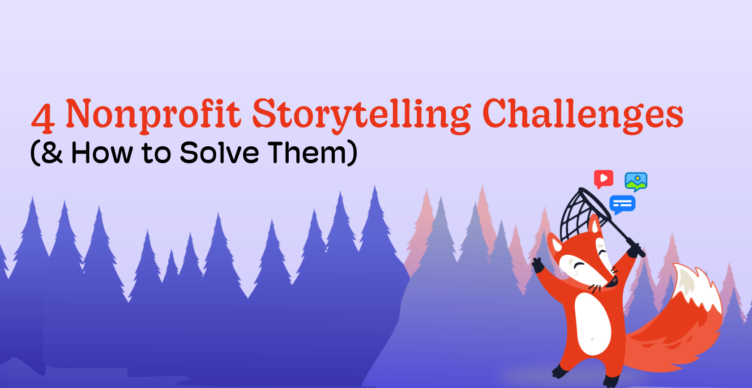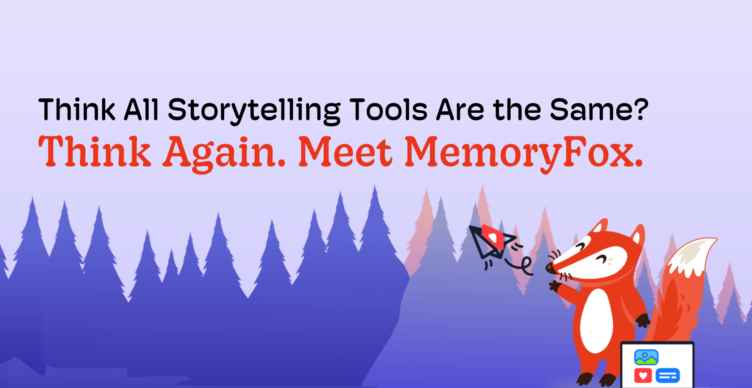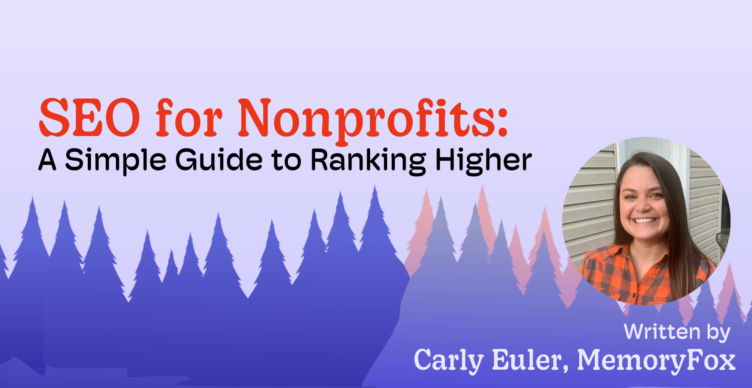Ethical Storytelling
Narratives With Integrity: My Top 3 Ethical Takeaways
As a Marketing Intern at MemoryFox, I have taken a great interest in the skills and processes of nonprofit ethical storytelling. My introduction to the field of storytelling ethics began during my studies as a Business Marketing student at San Diego State University, where I had the opportunity to take a writing course that showed me how to modify textual components for various audiences, purposes, and settings. Since being with MemoryFox, I have come to understand the power of storytelling in the nonprofit industry.
 I had the amazing opportunity to learn more about the dynamics of ethical storytelling and gain insight from professionals in the field by attending the Narratives With Integrity event hosted by MemoryFox. The panelists, featuring Frank Velásquez Jr., Founder of 4 Da Hood, Sabrina Walker Hernandez, President & CEO of Supporting World Hope, Marshall Stowell, Founder & CEO of Intentional and Senior Program Officer at the Bill & Melinda Gates Foundation, and Marina Dalton-Brown, Global Public Health Strategist, contributed their knowledge and insights to enhance our comprehension of nonprofit ethical storytelling. The expectations I had going into the panel was to first get a thorough understanding of the values that guide storytelling such as appropriate language and consent. I also wanted to gain useful tactics and suggestions that I could apply into my internship with MemoryFox to help us fulfill our purpose of elevating nonprofit audiences.
I had the amazing opportunity to learn more about the dynamics of ethical storytelling and gain insight from professionals in the field by attending the Narratives With Integrity event hosted by MemoryFox. The panelists, featuring Frank Velásquez Jr., Founder of 4 Da Hood, Sabrina Walker Hernandez, President & CEO of Supporting World Hope, Marshall Stowell, Founder & CEO of Intentional and Senior Program Officer at the Bill & Melinda Gates Foundation, and Marina Dalton-Brown, Global Public Health Strategist, contributed their knowledge and insights to enhance our comprehension of nonprofit ethical storytelling. The expectations I had going into the panel was to first get a thorough understanding of the values that guide storytelling such as appropriate language and consent. I also wanted to gain useful tactics and suggestions that I could apply into my internship with MemoryFox to help us fulfill our purpose of elevating nonprofit audiences.
My Top 3 Nonprofit Ethical Storytelling Takeaways:
- Capturing Consent is Critical: It is important to remember that sharing someone’s story requires their consent. Receiving someone’s consent ensures that people’s sensitive stories are shared respectfully and can prevent misrepresentation in their story. The panel discussed the significance of getting the storyteller to read and sign a consent form, indicating that they understand exactly how their narrative would be used, in order to secure their clear approval. The idea of gradually renewing permission also emphasizes the significance of continuing communication and respecting the agency of the storyteller.
- Navigating Vocabulary’s Evolution: The panelists discussed how language is always changing and how important it is to use inclusive and polite language. Words that were formerly considered appropriate may now be seen as hurtful or disrespectful. An example provided by one of the speakers was, instead of saying “homeless” you can use the term “unhoused”. It’s critical to steer clear of language that supports negative narratives or stereotypes and instead use language that inspires and uplifts people. Frank Velásquez Jr. has provided a resource he created to help use appropriate language in storytelling.
- Embracing Diverse Perspectives: One recurring theme the panel focused on was how important it is to avoid racist tropes like “white saviorism”. Rather than reinforcing harmful misconceptions, it is critical that we encourage diversity and elevate a range of perspectives. In nonprofit ethical storytelling, we may enhance diversity and prevent discrimination by elevating real stories and honoring the communities they represent. This strategy guarantees that every person’s story regardless of race or origin is respected and acknowledged.
The Narratives With Integrity event has been an eye-opening experience for me. It has expanded my knowledge of nonprofit ethical storytelling techniques and motivated me to approach storytelling with more awareness and compassion. Let’s stay dedicated to elevating stories with integrity as we move forward in the field of nonprofits.
If you’re interested to learn more about ethical storytelling, I suggest you listen to the Narratives With Integrity event recordings and keep an eye out for upcoming webinars and events about the topic. Let’s work together to use storytelling’s ability to inspire others!

About the Author
Jade-Lynn Beltran
Marketing Intern, MemoryFox
As a marketing intern at MemoryFox, Jade-Lynn is dedicated to ethical storytelling practices. With a background in business administration marketing from San Diego State University, she brings a passion for helping nonprofits, evident through her work at MemoryFox and volunteering experiences, including coaching young cheerleaders and assisting those in need through various community initiatives. Connect with Jade-Lynn on LinkedIn.




